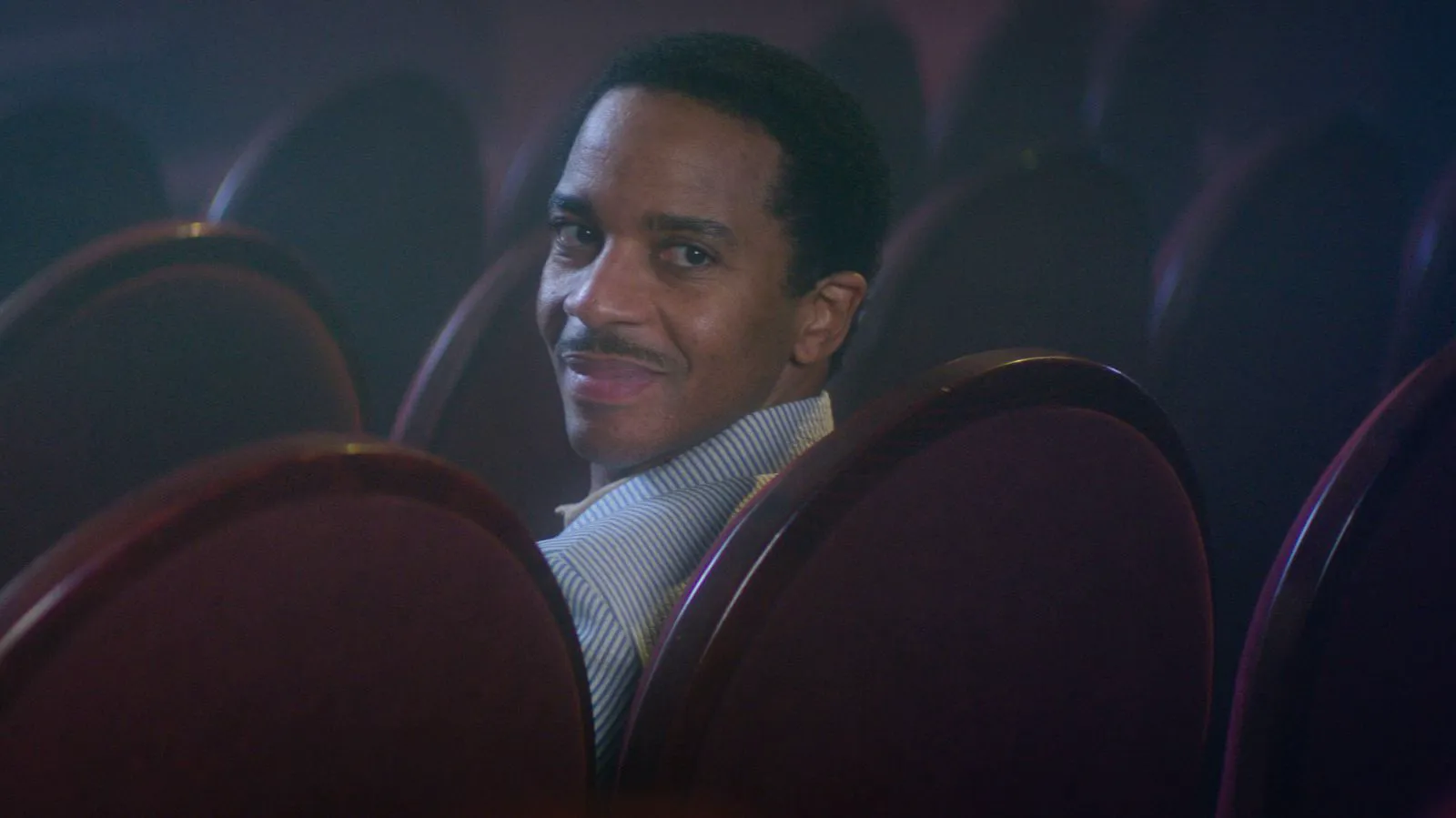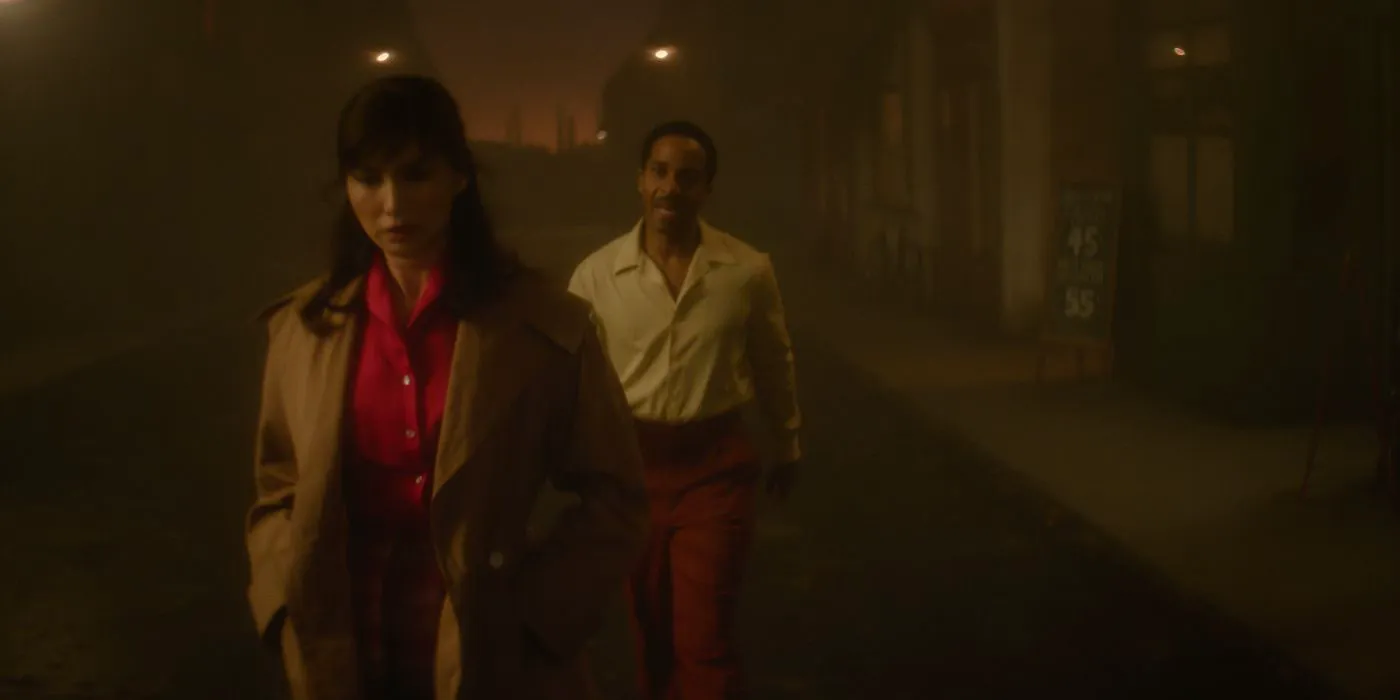The Actor: A Dreamlike Exploration of Identity and Memory
Set in the 1950s, “The Actor” plunges us into the disoriented world of Paul (André Holland), who awakens in an Ohio hospital with no memory of his name, his past, or how he arrived there. He’s informed by the authorities that he’s a New York actor who was attacked by the jealous husband of his lover. Facing potential jail time due to the state’s strict adultery laws, a detective advises him to flee.

André Holland as Paul in “The Actor”
Short on funds, Paul finds himself stranded in a small town, where he hopes to earn enough money for a ticket back to New York. He meets Edna (Gemma Chan), and a relationship blossoms. Just as life seems to be stabilizing, his amnesia persists, fueling an obsessive quest to uncover the truth about himself.
“The Actor” is an adaptation of Donald E. Westlake’s novel “Memory,” written in the 1960s but only published in 2010. Directed by Duke Johnson, known for his stop-motion animation work, including the Oscar-nominated “Anomalisa” with Charlie Kaufman, this film sees the duo collaborating once again, with Kaufman as a producer. Originally slated to star Ryan Gosling, the role of Paul ultimately went to André Holland, who delivers a compelling performance. Even when the narrative becomes confusing, Holland’s portrayal of a lost and melancholic man keeps the audience engaged.

André Holland as Paul in “The Actor”
Kaufman’s Influence and the Blurring of Reality
Kaufman’s influence on Johnson’s directorial style is evident from the opening scenes. The lines between reality and illusion blur, reminiscent of film noir. Is Paul truly caught in a classic love triangle, or is it merely a scene from his next movie? The actors seem to embody different characters, and the transitions between scenes evoke the changing sets of a play.
“The Actor” isn’t concerned with neat resolutions or explanations. Johnson is more interested in exploring themes of identity, self-perception, and the fragility of memory.

André Holland as Paul in “The Actor”
The Search for Self and the Echoes of the Past
Paul’s attempts to reclaim his past and return home prove to be a frustrating experience. He searches for answers in books, jazz records, and conversations with friends. In one poignant scene, he spends his last few dollars to see a movie, seeking solace and guidance in art. The film playing is “Casper the Friendly Ghost,” a fitting parallel to Paul’s own existence as a ghost trapped between a hazy past and an uncertain future.
Identity and the Actor’s Dilemma
Johnson questions the very foundations of identity: Is it shaped by the opinions of others, our passions, or our actions? What if the “old” Paul was not a good person? Could amnesia be a form of liberation, an opportunity to forge a new identity? The film is filled with such existential questions. Paul’s profession as an actor adds another layer of complexity, as he is accustomed to inhabiting different roles, perhaps losing himself in the process.
A Dreamlike Experience
“The Actor” unfolds like a melancholic, fragmented dream. Johnson effectively conveys a sense of profound loss and the yearning for inner stability. However, like a fleeting dream, the film occasionally loses focus and becomes disjointed, and Paul’s journey can feel drawn out at times (despite the film’s 98-minute runtime).
Despite these shortcomings, the film’s stunning visuals are captivating, with its hazy atmosphere, warm tones, and retro aesthetic. “The Actor” may face a quiet fate, potentially fading into obscurity. However, fans of Charlie Kaufman and those who appreciate surreal cinema may find it a worthwhile experience.